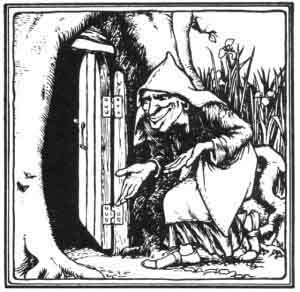
So much of what we think Shakespeare "means" is locked in 19th Century interpretations and culture, that we sometimes take it as truth.
Perhaps the biggest problem of The Merchant of Venice is the percieved anti-semitism of the play.
There are certainly anti-jewish feelings expressed by characters in the play, but does this make the play anti-semitic?
I think not - and it is something that has had me puzzled for a number of years - ever since I first read the play back in the 1970's. I read it as an attack on anti-semitism much more than an attack on Jewishness: I found Antonio a very unsympathetic character, and Jessica a dishonest and wasteful child.
Then I started reading about the play and watching performances which set up a tension with my initial view.
Recently I have become more convinced that my initial reaction is closer to that of Shakespeare's time (see the post below on Shylock and Shakespeare's Dad).
What if Shakespeare's England was a lot less anti-semitic than it is given credit for? How could this be and how could its reputation be tarnished? And what about the term itself: Anti-semitic?
We cannot (nor should we) forget events of the last century - this has stained our view of anti-semitism: But it is not the sort of anti-jewish feelings expressed or even felt in Elizabethan England. The Queen, Elizabeth, had a Portugese Jewish doctor (thinking about the idea of Hitler having a German Jewish doctor puts this into perspective).
The very concept of race has far less relevance too: Nationality and Religion were far more important. 'Semitic' is a race - it carries biological and time consequences -you cannot change your race. You can both choose and change your religion, and national alligences change too.
Hebrew was a respected language - the language of the Old Testament and taught in Oxford and Cambridge: The Church in England read, every Sunday, from the Old Testament. The Kings of the Jews were held up as examples of virtue and strength.
A world very far from the deep anti-semitism frequently credited to Elizabethan England.
If we turn to the Victorian period we find a very different situation. (Race has been faught over in parliament, Evolution is an issue - and Darwin is about to deliver On the Origin of Species.)
Fagin, as rabid an anti-semitic portrait as you will find in serious literature, exposes just how the world has changed.
It is the picture published of Fagin we think of when we turn to Shylock: And the writings and performances of the play of this time which have coloured our view of the play.
What are the consequences for the play's meaning if Elizabethan England were more as I picture it?
Most important for me is the character of Shylock. He is not a hero (is anybody in this play?). He has faults - but these faults lie not in what he is but what he does.
For me, Shylock's biggest fault is the thirst for revenge: Like Hamlet.





